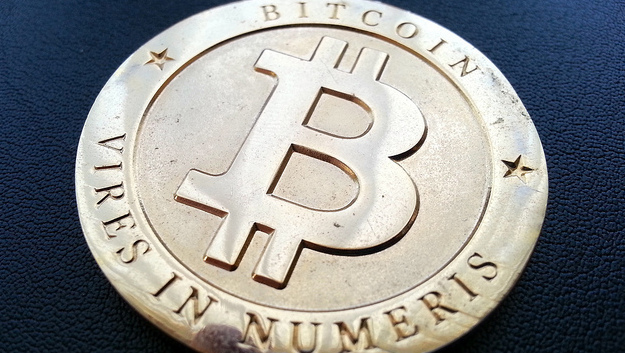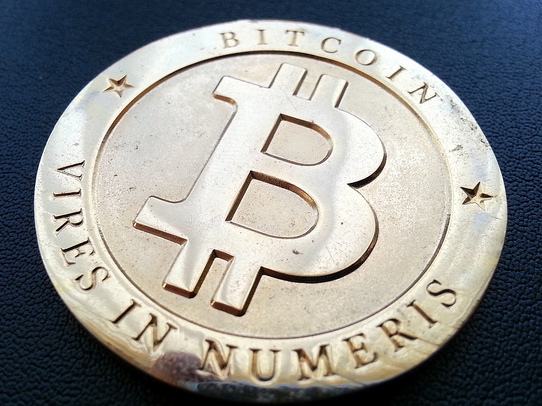
This article is the third part of a four-part series on the viability and future of the Bitcoins.
The FBI seizure of Silk Road and the arrest of its operator, Ross William Ulbricht, presented a conundrum the U.S. Department of Justice has never had to deal with before. Initially, the FBI seized over 26,000 Bitcoins from Silk Road, with plans to locate and take Ulbricht’s private stash — allegedly nearly 600,000 Bitcoins, or roughly 5 percent of all Bitcoins currently in circulation. “We will download the Bitcoin and store them,” said an FBI spokeswoman to Forbes. “We will hold them until the judicial process is over.”
The unanswerable question: what will the government do with the Bitcoins, then? Traditionally, seized currency is assumed by the government, divided through a system of local and state allocations, depending on their role in the seizure, and utilized for future Justice Department operations. Bitcoins, a virtual cryptocurrency, present a unique problem. As the Bitcoins sit in a publicly viewable address — in which “protesters” have been amending the blockchain by sending micro-fractional Bitcoins transfers to the wallet, which allows them to leave comments — the federal government, like so many thieves and hackers who have stolen Bitcoins only to learn they can’t use them, is dealing with the fact that despite expressed legal control, the Bitcoins are still in the control of their key owners.
This uncertainty and lack of control is what is behind the government’s opposition to Bitcoins and other forms of virtual currency. How can you regulate something you have no real control over? How can you seize something that is intangible, and how can you stop a money crime that happened in virtual space? Ultimately, as Bitcoins become more commonly used, questions of government control grow more prevalent and harder to answer.
“This is kind of new to us,” said the FBI spokeswoman when asked what will be the seized Bitcoins’ ultimate fate. “We will probably just liquidate them.”
An end of anonymity
As newly leaked documents from former NSA analyst Edward Snowden show that the federal government has been engaged in finding zero-day vulnerabilities and other weaknesses in the Tor Network that would break the encryptions the system uses to preserve data anonymity, the hard realization is that the government is growing increasingly uncomfortable with the idea of Internet privacy. Despite the fact that the U.S. Department of State is the principle underwriter of the Tor Network — due to the fact it allows dissenters and journalists to share news from behind the firewalls of censorship-heavy nations — with USAID and the State Department awarding $25 million earlier this year to support counter-censorship, the security and law-enforcement community has undertaken a “no secrets allowed” posture.
“Recently published news articles discuss the Intelligence Community’s interest in tools used to facilitate anonymous online communication. The articles accurately point out that the Intelligence Community seeks to understand how these tools work and the kind of information being concealed,” wrote Director of National Intelligence James Clapper after the publication of Snowden’s Tor leak. “However, the articles fail to make clear that the Intelligence Community’s interest in online anonymity services and other online communication and networking tools is based on the undeniable fact that these are the tools our adversaries use to communicate and coordinate attacks against the United States and our allies.
“In the modern telecommunications era, our adversaries have the ability to hide their messages and discussions among those of innocent people around the world. They use the very same social networking sites, encryption tools and other security features that protect our daily online activities,” Clapper continued. “Americans depend on the Intelligence Community to know who and what the threats are, and where they come from. They want us to provide policy makers with the information necessary to keep our nation safe, and they rightfully want us to do this without compromising respect for the civil liberties and privacy of our citizens.”
While at this point it’s not a surprise that the federal government would take extreme steps toward breaking Internet anonymity, some believe that the government’s desire to track online drug dealers and children pornographers is not the primary reason for the federal government’s opposition to the Bitcoin and resistance to user anonymity.
The United States v. virtual currencies
Liberty Reserve was a Costa Rica-based global currency exchange that allowed buyers to transfer real-world currency to Liberty Dollars — a form of virtual currency similar to the Bitcoin — and vice versa. In May, the U.S. Justice Department seized Liberty Reserve, with the operator of the business being arrested in Spain.
“As alleged, the only liberty that Liberty Reserve gave many of its users was the freedom to commit crimes — the coin of its realm was anonymity, and it became a popular hub for fraudsters, hackers and traffickers,” said Preet Bharara, the U.S. Attorney for the Southern District of New York, at the news conference announcing the seizure. “The global enforcement action we announce today is an important step toward reining in the ‘Wild West’ of illicit Internet banking. As crime goes increasingly global, the long arm of the law has to get even longer, and in this case, it encircled the earth.”
This line of thinking presents a potential legal headache. First off, using a virtual currency is not illegal. The U.S. Department of the Treasury Financial Crimes Enforcement Network states, in its March 2013 report, that virtual currency does not count as “real” currency. “FinCEN’s regulations define currency (also referred to as ‘real’ currency) as ‘the coin and paper money of the United States or of any other country that is designated as legal tender and that circulates and is customarily used and accepted as a medium of exchange in the country of issuance,’” reads the FinCEN guidance notice. “In contrast to real currency, ‘virtual’ currency is a medium of exchange that operates like a currency in some environments, but does not have all the attributes of real currency. In particular, virtual currency does not have legal tender status in any jurisdiction. This guidance addresses ‘convertible’ virtual currency. This type of virtual currency either has an equivalent value in real currency, or acts as a substitute for real currency.”
The guidelines rule that buyers of virtual currencies are immune of money control regulations, but state that exchangers and transmitters are subject to money service business (MSB) regulations and record-keeping requirements. However, FinCEN’s MSB rules would only apply to American businesses and individuals.
So, the case against Liberty Reserve (a Costa Rican business outside of American jurisdiction) is based on the notion that users have been using this virtual currency to buy illicit goods (which would be an indictable offense against the buyer — the federal government has yet to indict a Liberty Reserve “customer” — and not Liberty Reserve, as the company neither processed “real” currency deposits nor withdrawals, but allowed a third-party processor to handle fiduciary actions) and to launder currency to criminal organizations (which cannot be proved, as no indictments tying Liberty Reserve to an actual episode of money laundering in support of criminal activity have yet been filed).
“There are concerns of bitcoin being used in illegal ways, but unless there is more substantial evidence of this, I don’t think there is any reason to shut down the main bitcoin exchange. U.S. dollars, Russian rubles and euros have all been used by criminals, but nobody is suggesting their central banks should be closed down and their governors imprisoned,” said Jon Rushman, former managing director at BlackRock. “It is a little bit of a hysterical reaction from the U.S. authorities.”
Of particular interest in this argument is the FinCEN’s distinction between a virtual currency creator and a virtual currency trader:
“A person that creates units of this convertible virtual currency and uses it to purchase real or virtual goods and services is a user of the convertible virtual currency and not subject to regulation as a money transmitter. By contrast, a person that creates units of convertible virtual currency and sells those units to another person for real currency or its equivalent is engaged in transmission to another location and is a money transmitter. In addition, a person is an exchanger and a money transmitter if the person accepts such de–centralized convertible virtual currency from one person and transmits it to another person as part of the acceptance and transfer of currency, funds, or other value that substitutes for currency.”
Challenging the dollar
While only a court can decide if Liberty Reserve is a currency creator or trader, the nature of this argument places the Justice Department on uncertain ground in defending it. It would not be too hard to argue that the United States’ position against Liberty Reserve was an overreach. It may be that ultimately the Justice Department had no choice but to challenge Liberty Reserve, Bitcoins and the expanding world of virtual and private currencies, which is now estimated to number between 6,000 and 7,000 separate currency systems throughout the world.
What these currencies represent is a lack of faith in the dollar. As more individuals invest in alternative currencies out of fear of regulatory restrictions, inflation or taxation, fewer individuals invest in the dollar. The American currency is a fiat currency, meaning that its value is derived from the good faith in the federal government to honor its debts. Lack of faith in the government weakens the dollar, and in light of government shutdowns, threats to default on the national debt, a slow recession recovery and distrust over the nation’s financial policies, the idea of virtual currencies is not only attractive, but a growing mainstay in everyday life. As increasing numbers invest in Bitcoins and as mobile payment expands globally, many foresee a day when the dollar is no longer the world’s reserve currency.
“Fiat money is money with a government declared value, rather than a natural, inherent value. That is how the government takes some paper, slaps some ink on it, and supposedly it has the value the government and the ink says it has,” wrote Peter Ferrara for Forbes. “But that fiat money also lasts only as long as the ruling class has the power to impose it on us. That means the political power and the market power to do that. At some point, the market power, which is more real and natural, can overcome the political power. And that is the point we are reaching, when the innovation becomes more real and natural.”
“Bitcoin is very attractive because it offers inflation protection,” said Rushman in the statement. “The fact it is limited to 21 million bitcoins makes it an inflationless currency, something central banks can’t guarantee. … The bitcoin is testing our perceptions in so many ways and it is challenging regulators. It crosses and pushes boundaries and I would like to see a rational debate on how to use it in the future.”
Behind the government’s frustration with Bitcoins and other virtual currencies lies the fact that they represent a future that is beyond America’s control. The continued growth of mobile payment and virtual banking represents a world where seizing currency goes beyond just being in possession of it, where money can exist without being immediately traceable to any particular person and where a person can increasingly shop and thrive without using a single dollar. This is a future the nation is working hard to change.
But this still begs the question of the future of the Bitcoin. Given its structural flaws, history of criminal use and high value fluctuation, can it survive as a currency, and more importantly, can it be accepted as legitimate by the world’s governments?


